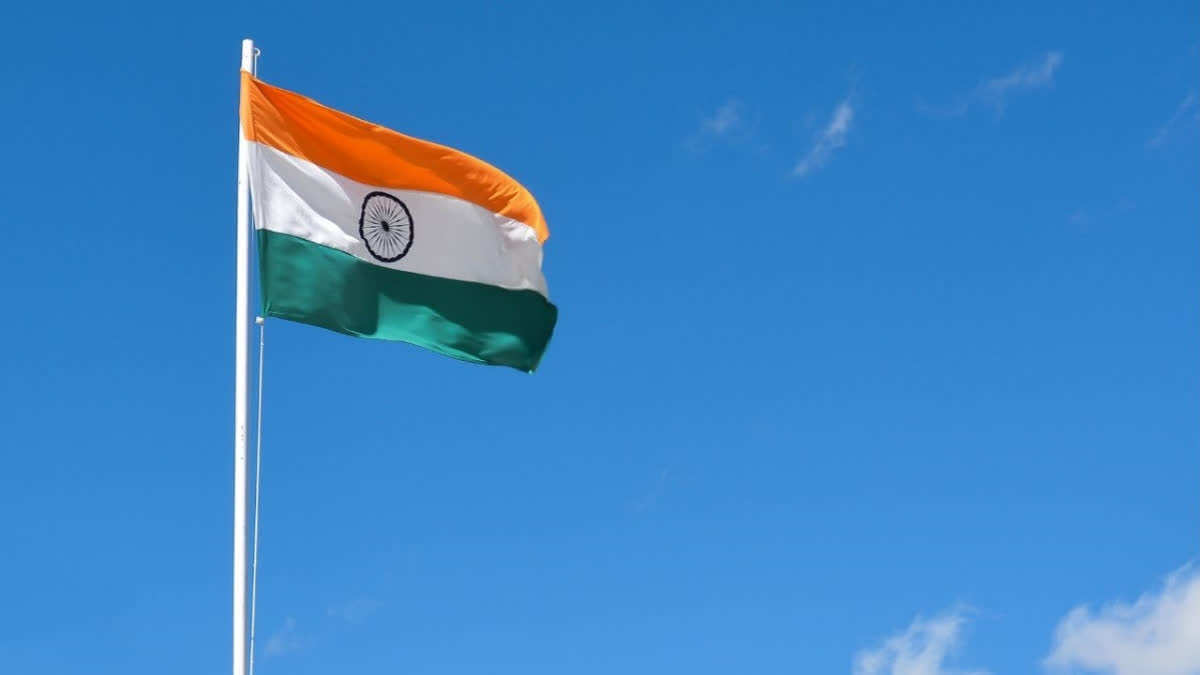A G20 dinner invite issued in the name of President Draupadi Murmu mentioning her Constitutional position as the “President of Bharat” and an official note on ASEAN referring to Prime Minister Narendra Modi as "Prime Minister of Bharat" have triggered a buzz that the Centre is going to change the country’s name from India to Bharat.
Against this backdrop, an opinion is being widely propagated that the British had named the country 'India' and the name is a colonial remnant. History is not an admixture of conservative opinions voiced by a few orthodox individuals. It is the outcome of the orderly analysis of facts emerging from archaeological findings, inscriptional evidence, numismatics, social, cultural and literary proofs.
Amid the negative propaganda being fanned over our country's name 'India', it is essential to take a retrospective view of our collective past. The Indus Valley Civilization is one of the three oldest civilizations of the World. The roots of the name India lie in the civilization that flourished 3,000 years before the Christian Era.
As words beginning with an S sound were rare in their language, ancient Persians pronounced River Sind as Hind. Greeks pronounced it as Indus. Around 440 BCE, Greek historian Herodotus termed the land drenched by Indus waters as 'He Hindike Chore' meaning the Indus Land.
Greek intellectual Megasthenes, who became popular as the father of India’s history titled his work as ‘Indica’ way back in 300 BCE. There was no country called Britain at that time. The term "Britisher" became popular in 1707 AD after the United Kingdom of Great Britain came into being.
Also read: 'If we get requests like that, we consider them as they come': UN spokesperson on 'Bharat' row
When that is the truth, how can we give to the British the credit of christening our country as India? This land was globally popular as India at least for 2,000 years before the Englishmen arrived here. India, as a country, has a glorious history. The name India, rooted in the Indus Valley Civilization, of which the entire nation is proud of, is a symbol of the cultural and historic heritage of 140 crore people.
It is also quite interesting to note the way the term 'Bharat' came to be associated with Aa Sethu Himachalam. The term Bharata was used for a clan of people during the Rigvedic times. King Sudas, the winner of the Rigvedic battle of ten kings belonged to the Bharata clan. Along with the Bharatas, clans like Puru, Yadu, Turvasa and others were also present in those days.
We see that terms like 'Bharata Bhoomi' and 'Bharata Varsha' were used to denote a territory in the great epic Maha Bharata and Vishnu Purana. Historically speaking, the term 'Bharata Varsha' was used in the popular Hathi Gumpha inscription found near Orissa capital Bhubaneshwar.
The inscription engraved in the name of the ancient Kalinga king Kharavela states that Kharavela sent his forces to occupy 'Bharata Varsha'. According to that, 'Bharata Varsha' was the geographic area encompassing Gangetic plains. Similarly, the term 'Bharata Varsha' entered the domain of historic inscriptions through Kharavela somewhere between the 2nd Century BCE and 1st Century AD.
Long before that the name 'India' became popular in other countries through the works of Greek historians. In his Discovery of India, Jawaharlal Nehru wrote, "Often, as I wandered from meeting to meeting, I spoke to my audience of this India of ours, of Hindustan and of Bharata, the old Sanskrit name derived from the mythical founder of the race.”
He mentioned all three names of the country -- India, Hindustan and Bharat -- in his work. In the first article of the Constitution, the founding fathers of the nation have clearly written, “India, that is Bharat…” Hence it is very unfortunate that a controversy has been raked up on the very name of the country. If the ruling party has any objection over the name India, it can use the name Bharat. There cannot be any problem with that. But if the Centre resolves to completely remove the name, then it is not welcome.
Also read: INDIA bloc making BJP nervous, 'India-Bharat' issue being raised to mislead people: Kharge
The Opposition parties, who are firm in their resolve to hit the Dahi Handi of power in the coming elections have named their alliance INDIA after much deliberation. The ruling party supporters who are saying - let us forget the name India, have no other motive behind their stand than to score over the Opposition.
Will not the country’s prestige take a beating because of such unnecessary controversy kicked up at a time when global leaders are going to gather in Delhi to participate in the G20 Summit? If the special session of the Parliament is meant only for the rechristening of the country, will not the arguments and counter-arguments over the issue cast a shadow on the country’s image and its democratic maturity?
It is time for all to realise that the name India is intertwined with the emotions of all our countrymen. Prime Minister Narendra Modi had said that the Centre and States should together work as 'Team India' to achieve Vikasit Bharat (Developed Bharat). The crux of the Prime Minister’s message was that everyone should collectively focus attention on progressive policies. Hence any haste towards rechristening the country will deal a body blow to the spirit of 'Team India'. Such precipitative haste would be truly undesirable.
(Translation of the Eenadu Editorial published in September 7 edition)
